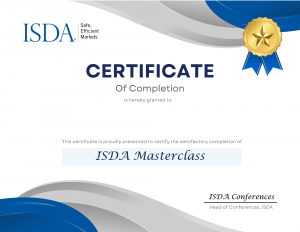Derivatives are evolving and standard-setters have developed new accounting requirements to manage the associated risks and make the derivatives markets safer and more efficient. This comprehensive two-day in-person masterclass in accounting for derivatives will provide you with the essential knowledge you need to navigate this complex area and is open to professionals with all levels of expertise.
The first day will begin with an overview of fundamental concepts, starting with the various derivative products (i.e., futures, forwards, options, and swaps) and their functionality and accounting impact. The overall focus will be to introduce you to the foundations behind accounting for derivatives, how entities use these instruments in practice, along with their respective balance sheet presentation (e.g., netting and offsetting requirements) and measurement under US GAAP and IFRS. The course will also provide an overview of the valuation of derivatives and the requirements for recognizing valuation adjustments such as credit valuation adjustment (CVA), debit valuation adjustment (DVA), funding valuation adjustment (FVA) and other valuation adjustments (XVAs). In addition to these educational sessions, there will be an interactive panel discussion led by high-calibre speakers who will be discussing the key recent market developments in derivative use.
The second day will be a deep-dive into more advanced topics. This course intends to teach attendees how to designate hedge accounting relationships, assess hedge effectiveness, prepare journal entries, and draft the required disclosures. Through various sessions, you will learn about the different hedge accounting models and the requirements to qualify for hedge accounting including portfolio hedging, and how to navigate the issues pertaining to the bifurcation of hybrid instruments with embedded derivatives, noting differences between IFRS and US GAAP. The course will provide updates on recent developments on projects from both the FASB, related to definition of a derivative and hedge accounting improvements, and IASB related to Dynamic Risk Management and the Classification and Measurement of Financial Instruments. Finally, it will discuss the latest developments in accounting for environmental, social and governance (ESG) instruments and digital assets. There will also be a brief session providing market updates related to the recent banking and liquidity crisis.
Led by a team of senior industry practitioners and accounting specialists, this in-person course will equip professionals with a deep practical knowledge of core accounting issues and strategies, as well as insights into emerging trends reshaping the derivatives business.
*Course developed jointly with EY*
- Learn about the fundamental concepts of set-off, netting and offsetting of derivatives accounting, including an overview of key accounting models and requirements.
- Understand how the metrics used to evaluate derivatives affect reporting in the balance sheet.
- Understand how accounting requirements differ between cleared and bilateral OTC derivatives.
- Gain knowledge of offsetting criteria, what it means in legal and accounting terms and how it is applied to cleared and bilateral OTC derivatives.
- Gain an understanding of the accounting implications of various valuation adjustments and reserves, including CVA, DVA, FVA and XVA.
- Understand the meaning of marked-to-market and the accounting methodology for derivatives focusing on the impact of fair value requirements for accounting with practical examples.
- Gain an understanding of portfolio hedge accounting requirements and potential future developments from both the FASB and IASB, including the emergence of the IASB’s Dynamic Risk Management model and its operational complexities.
- Hear about the accounting treatment and latest developments in ESG-related instruments and crypto assets, and related derivatives.
- Understand the impact of the events of the 2023 banking and liquidity crisis and their impact on the financial markets and banking industry, along with current mechanisms used by banks to manage the associated risks.












